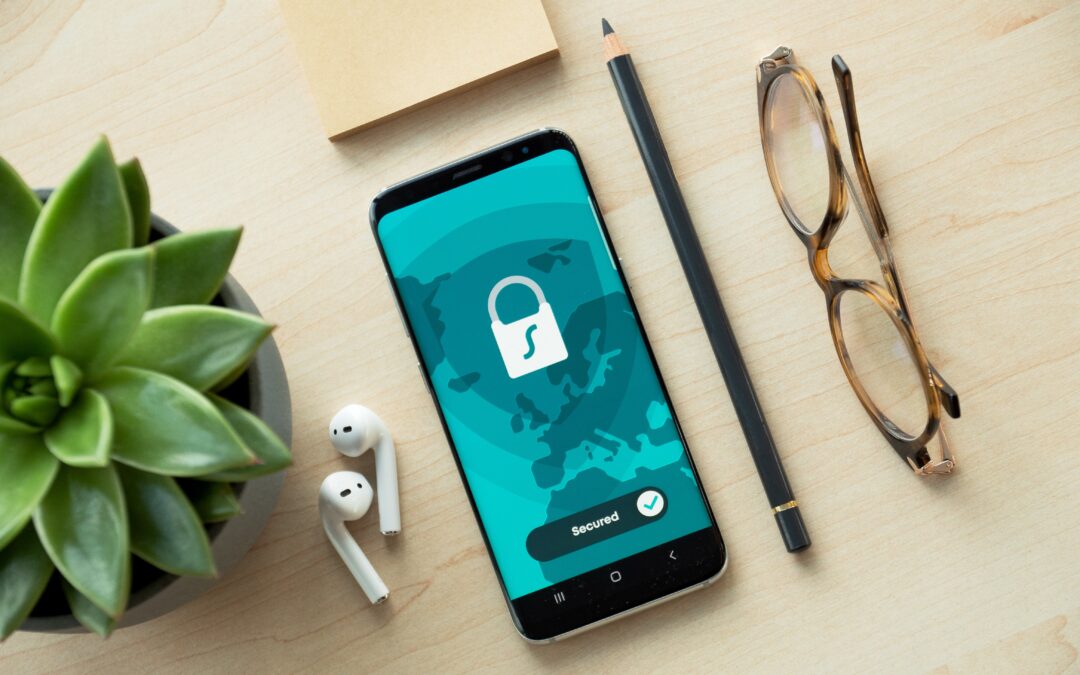Nearly everyone has one. More than 85% of Americans own a smartphone. This revolutionary device has changed our very lives by offering more information and power at our fingertips than ever before. We use our phones to interact on social media, play games, perform work tasks, manage online banking, and for storing very sensitive information. It’s no wonder these incredible devices are sought after by cybercriminals bent on hacking your smartphone for their treasure troves of profitable business and personal information.
All smartphones, including iPhones, can be hacked. That can feel like there is always a target on your back. Acme Business wants our customers and the public to know what to do to prevent bad actors from hacking your smartphone and other smart devices.
Is Someone Hacking Your Smartphone? Let’s Know the Signs
Signs of strange activity on your online accounts like unfamiliar logins, new account signups, and password reset emails can be telltale signs that someone is hacking your smartphone. Other signs may be calls or texts, outgoing and incoming, from your phone when not in use. If you do not recognize any of those actions, you have most likely been hacked.
Additionally, the device’s physical behavior and performance may change. Your smartphone may lose its charge quickly, run slower than usual, and use more data than normal. These are also possible signs of hacking. If there are unfamiliar apps you didn’t install or that did not come preinstalled with your phone, that may be an indicator your smart device is compromised.
The consequences of ignoring these are severe, especially in this digital age when so much business is done on personal devices. The safety and security of your business data and confidential information MUST NOT BE TAKEN LIGHTLY. If anything, you even have to be proactive to prevent cyber attacks.
Here’s how:
How to Prevent Hacking your Smartphone and Other Devices
Preventative measures can be taken to protect yourself and your business from these threats. These easy steps apply to any smartphone or smart device.
1. Update Your Device Consistently
Having the latest system update from your phone manufacturer (Apple, Samsung, etc.) removes vulnerabilities found by the manufacturer and protects your device.
2. Be Aware of Phishing Scams
Identifying phishing scams is an important skill we prize at Acme Business. It’s important to us that your business knows how to identify them, as well. In general, phishing is an email or other message from an address you do not recognize that aims to gather your personal information. Some of the best look as though they’re coming from trustworthy sources. Others lead to a website that looks hastily put together and just not normal.
Be careful opening emails and avoid clicking suspicious links.
(Related reading: Let’s read more about phishing attacks here)
3. Know Your Apps
Be sure the apps you download are trusted and do not give unnecessary permissions. Researching the app and its history allows you to see how long it has been around and whether it’s a fake. Red flags can be easily spotted when an app asks for permissions for things it should not need. A fitness app should not need permission to access your contacts. Similarly, if an app does not take pictures or record multimedia it should not have access to your camera or microphone.
4. Password Protect Your Device
Using a password to protect your device from easy access is a simple but effective way to prevent hacking. Ensure the passwords you use are strong and not easily guessed. (Ex. Password, 123456, etc.) Make your password something that many people do not know about you, and enable multifactor authentication (MFA) for additional protection. Most phones have touch or face identification for extra security, so enable them if those options are available.
5. Avoid Free Public Wi-Fi
Avoid this especially in public places like cafes, restaurants and stores. Someone could be monitoring packets of data or posing as a fake hotspot for that location. If you are using free Wi-Fi do not connect to anything that can access sensitive data for you or your business. Any information is information worth protecting.
Easy Steps to Preventing Bad Actors from Hacking Your Smartphone
Protecting your smartphone and other devices is particularly important in this digital age. Hackers could potentially gather BOTH personal and business data for nefarious purposes. Not only should you be proactive by taking these common-sense steps, but your business IT should enact cybersecurity precautions and protocols to protect your business data. If you don’t have a formal IT department, managed IT services could provide all of the same protections.
With how prevalent devices are in our lives Acme Business wants to ensure that yours is secured. Call Acme Business at (716) 372-1325 or visit our website for expert guidance on how we can keep you protected on more than just your phone. Follow us on LinkedIn, too!


Recent Comments